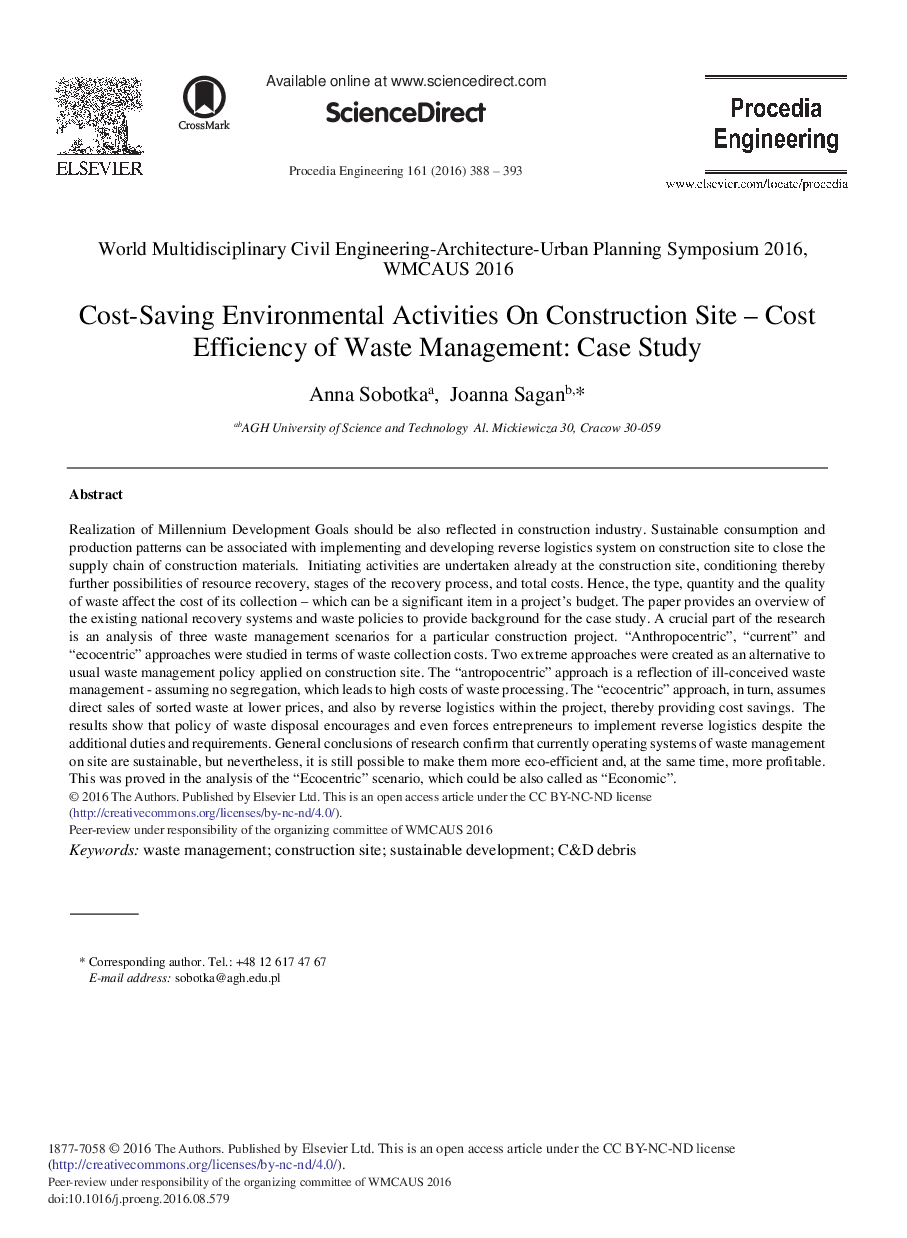| Article ID | Journal | Published Year | Pages | File Type |
|---|---|---|---|---|
| 5029765 | Procedia Engineering | 2016 | 6 Pages |
Realization of Millennium Development Goals should be also reflected in construction industry. Sustainable consumption and production patterns can be associated with implementing and developing reverse logistics system on construction site to close the supply chain of construction materials. Initiating activities are undertaken already at the construction site, conditioning thereby further possibilities of resource recovery, stages of the recovery process, and total costs. Hence, the type, quantity and the quality of waste affect the cost of its collection - which can be a significant item in a project's budget. The paper provides an overview of the existing national recovery systems and waste policies to provide background for the case study. A crucial part of the research is an analysis of three waste management scenarios for a particular construction project. “Anthropocentric”, “current” and “ecocentric” approaches were studied in terms of waste collection costs. Two extreme approaches were created as an alternative to usual waste management policy applied on construction site. The “antropocentric” approach is a reflection of ill-conceived waste management - assuming no segregation, which leads to high costs of waste processing. The “ecocentric” approach, in turn, assumes direct sales of sorted waste at lower prices, and also by reverse logistics within the project, thereby providing cost savings. The results show that policy of waste disposal encourages and even forces entrepreneurs to implement reverse logistics despite the additional duties and requirements. General conclusions of research confirm that currently operating systems of waste management on site are sustainable, but nevertheless, it is still possible to make them more eco-efficient and, at the same time, more profitable. This was proved in the analysis of the “Ecocentric” scenario, which could be also called as “Economic”.
